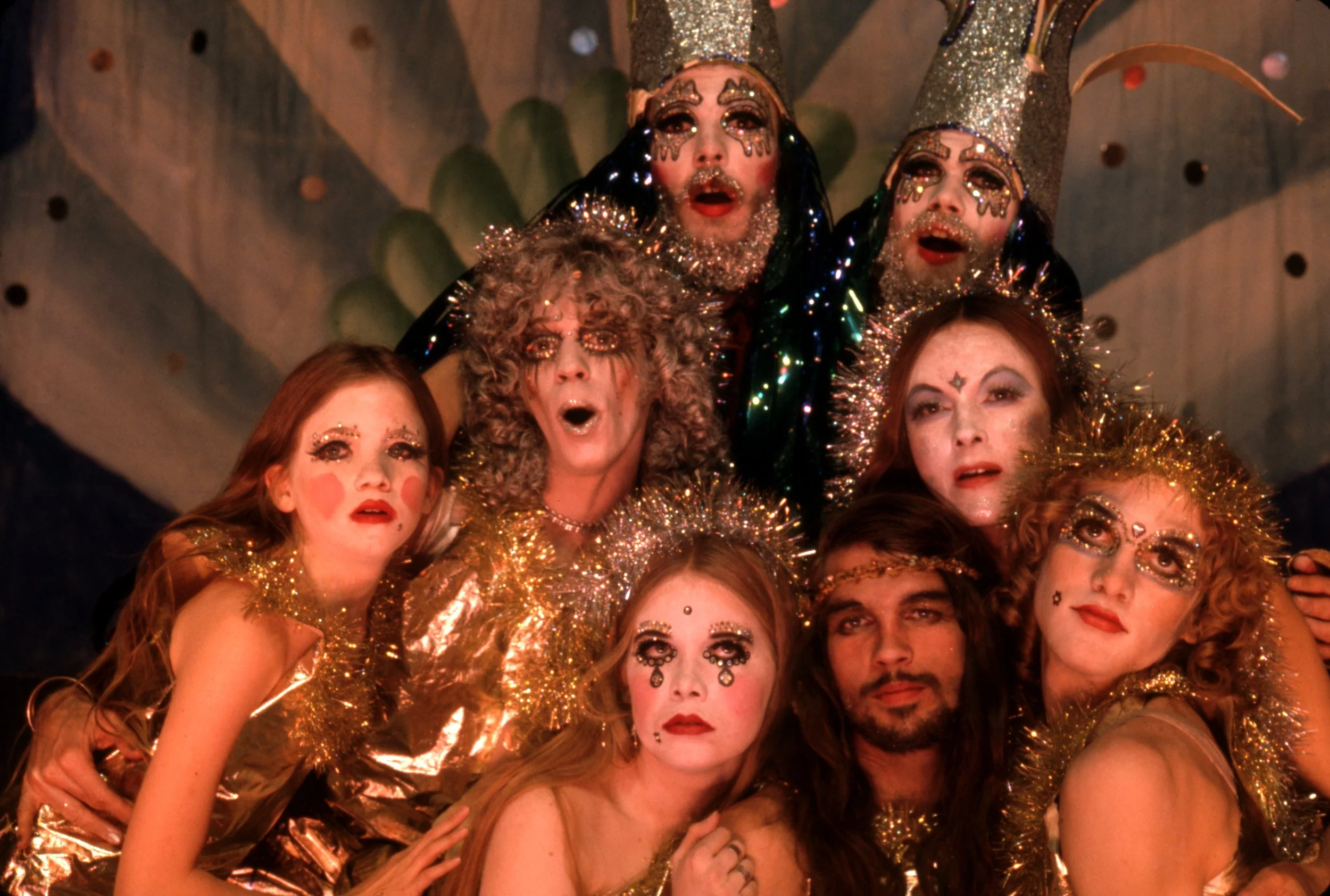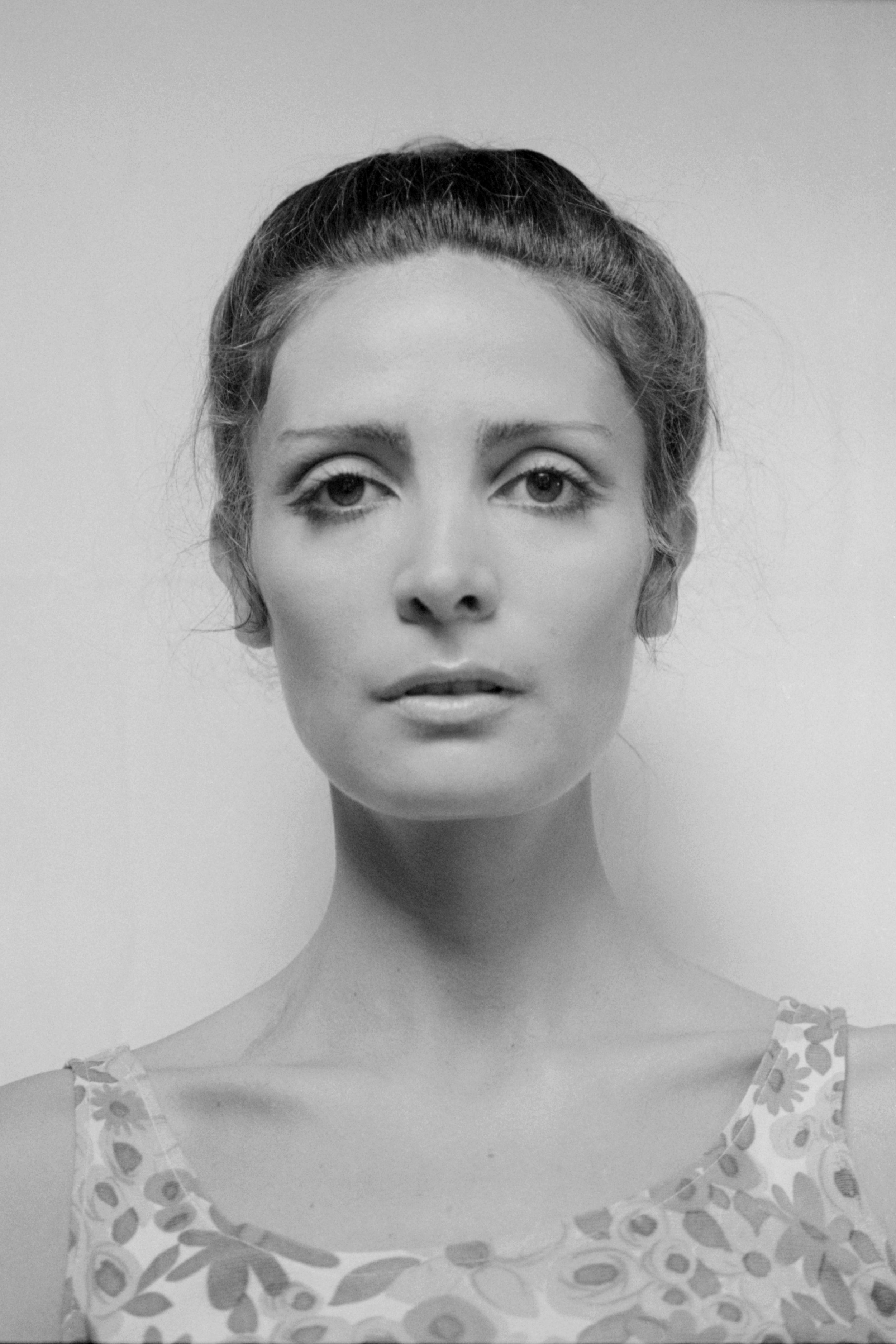Archive in Residence
Sheyla Baykal, Angels of Light, Gossamer Wings, 1973. Copyright Estate of Sheyla Baykal.
Soft Network is delighted to announce the estate of Sheyla Baykal (1944-1997) as the 2025-2027 Archive in Residence. Baykal was a Turkish-American photographer who lived and worked on the Lower East Side beginning in the 1960s. She was an important and well-known figure in the downtown New York art scene of the 1960-1990s, but little-known outside its coterie. In 1996, Baykal entrusted her archive and collection to her friend, performance artist Penny Arcade, who has cared for it since. Arcade and Steve Zehentner, her long-time collaborator and archivist, will partner with Soft Network to make Baykal’s archive and collection accessible through cataloging, digitization, research, programs, and exhibitions. Art historian Marcelo Gabriel Yáñez, who has been assisting Arcade and Zehentner with the Baykal estate, will act as the consulting scholar and curator throughout the residency. Marina Ruiz-Molina, Conservator at The Metropolitan Museum of Art, will provide preservation guidance for the estate. The first exhibitions and public programs focused on Baykal’s life and work will take place beginning in April 2025.
Baykal ran away from home at the age of 18 and arrived in New York in December 1962. Staying with a family friend in the West Village, she quickly fell into the world of New York School poets and artists such as Joe Brainard, Rudy Burckhardt, Kenneth Koch, Elaine and Willem De Kooning, Frank O'Hara, and others, eventually being immortalized as a part of the circle in Alex Katz’s painting Cocktail Party (1965). Through her work as a couture fashion model for the Ford Modeling Agency between 1964 and 1968, she closely studied the photographic practices of Richard Avedon and Irving Penn and bought her first Nikon F in 1965. From 1965 till her death, Baykal actively photographed her community, which expanded to include self-proclaimed “street queens” and counterculture performers living downtown. Some of her notable subjects included The Angels of Light, The Hot Peaches, and Bloo Lips as well as acts that were part of the Palm Casino Revue, a legendary Off-Off Broadway show she produced and directed.
Baykal is most well-known for her portraits of her inner circle, including John Eric Broaddus, Jackie Curtis, Candy Darling, Peter Hujar, Agosto Machado, Cookie Mueller, Jack Smith, and Paul Thek, but she also documented the extensive community of poets, actors, and artists during this extraordinary period of cultural life. Her photography as social practice was prescient, evident in her choice to create a storefront photographic studio in the East Village where she photographed as many people who passed by her door as possible. Beyond portraiture, she also photographed landscapes and animals across Europe, the Middle East, and Fire Island. In addition to her work as an artist, she was known for her generous communal living experiments and eventually became passionately involved in housing rights, establishing a cooperative apartment on East Third Street. She also became deeply involved in the fight to save one of the Lower East Side’s most well-known community gardens, “Garden of Eden.”
For most of her career, Baykal did not have the resources to professionally print and regularly exhibit her work. As an alternative, she often devised innovative ways to share it, experimenting with early color Xerox technology and presenting 35mm slideshows. Through her friendship with Hujar, her work became a staple in the experimental periodical Newspaper, published by Steve Lawrence between 1968 and 1971 and reissued by Primary Information in 2023. Posthumously, Baykal’s portrait of Candy Darling (1973) was included in “Luxe, Calme, Volupte,” curated by Allen Frame and Sergio Bessa at Candice Madey Gallery, New York, in 2023. Prior to this, Frame included Baykal’s photographs in an exhibition at MATTE Editions in 2021. In 2000, dozens of Baykal’s photographs of the Angels of Light were featured in “The Nocturnal Dream Show” curated by Daniel Reich at Pat Hearn Gallery alongside work by Jimmy De Sana, Jack Pierson and Joan Jonas. In a New York Times review of the exhibition, Holland Cotter described Baykal as a “vital fringe figure” of the Downtown arts scene who was “on the front lines of alternative-everything in the 1970's, along with her camera.”
In 1996, Baykal was diagnosed with end-stage cervical cancer and given nine months to live. She approached Penny Arcade and asked her to reprise the role she had played for the artist Jack Smith at the end of his life, a role Arcade had termed "Death Mother." Just as in early life a “mother” fosters the well-being and needs of an infant, Arcade saw the need for someone to help carry someone else's death, ensuring that their goals and wishes were protected, facilitated, and manifested. Baykal gifted Arcade her entire body of work and archive, including all her negatives, slides, and prints and delineated this act in her will.
Arcade and Baykal’s peer-to-peer model of legacy work is particular to artists and essential to the community Soft Network fosters. Soft Network looks forward to providing access to the work of Baykal and facilitating the development of new scholarship on the community of artists who Baykal supported. In addition, this residency will spotlight the remarkable network of care and community in which Baykal thrived and that Penny Arcade, Steve Zehentner and others in their community continue to sustain.
Sheyla Baykal, Self Portrait, 1965. Copyright Estate of Sheyla Baykal.
Sheyla Baykal, Jackie Curtis' Funeral: John Heys, Penny Arcade, and Kevin Bradigan, 1985. Copyright Estate of Sheyla Baykal.
Bios
Penny Arcade aka Susana Ventura is an internationally respected performance artist, actress, poet and theater maker. Her text based work is known for its humor, high content and highly quotable wit and focuses on community building as the goal of performance and performance as a transformative act. Her dedication to social practice and activism began in 1977 when she identified herself as an advocate for other artists. She continues in this role as an international community elder and icon of artistic resistance.
Marina Ruiz-Molina is a New York-based conservator specializing in works of art on paper. Since 2010 she has worked at The Metropolitan Museum of Art, where she studies and cares for the collections of the Departments of Asian Art, The American Wing, and The Michael C. Rockefeller Wing.
Marcelo Gabriel Yáñez is a photographer and art historian based in Stony Point, NY. He is a Ph.D. candidate in the Department of Art and Art History at Stanford University, currently at work on a dissertation titled The Disappearance of Landscape: Artists on Fire Island, 1937-1983.
A former architect, Steve Zehentner is a filmmaker, theater designer/director and archivist based in New York City. With Penny Arcade, he is co-founder of the Lower East Side Biography Project, a video oral history documentary project.



